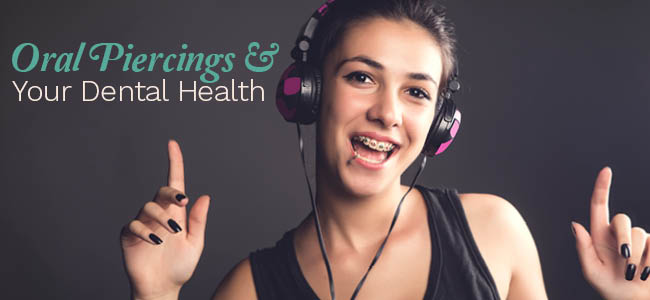
Motherhood is both wonderful and challenging. Most women agree that the only way to truly understand what being a mom is like is to become one. Once you have had children, they become your main focus, the purpose behind everything you do…and don’t do.
It’s not uncommon for women to neglect themselves after having a baby. From missing the daily shower to going an extra month or two without a haircut, it’s natural for mothers to reroute all of their resources to their child or children, whether that be time, money, or energy. But could that self-neglect be having a negative affect that extends beyond Mom?
Healthy Mom Equals Healthy Child
According to a study published in the Journal of Dental Research (Jan. 19, 2011)1, moms’ oral health predicts their children’s oral health. This 27-year-long study found that if mothers had poor oral-hygiene practices while their children were young, the children had a higher rate of dental caries and poor overall oral health as adults. The study was conducted in New Zealand and consisted of 835 mothers who participated in a self-rated survey and 1,000 children who were examined at age 5 and then again at 32 (more than 900 examined at this time).
The results were overwhelming. Almost half of the children with mothers who had poor dental health suffered from tooth decay and eventual tooth loss as adults.
Bad News or Good?
Initially, these results may sound like bad news, but they support the belief that when moms take time to care for themselves, they are also taking care of their children — a little relief from guilt for mom.
Oral hygiene and dental care should not be seen as optional for mothers; they are crucial to Mom’s self-esteem and overall health, as well as for the children’s health and well-being.
So what does putting the right amount of time and energy into dental care mean for Mom?
- Making sure to brush at least twice a day with fluoride toothpaste
- Flossing every day
- Minimizing the amount of sugary foods that are consumed
- Scheduling and attending regular checkups and cleanings
Some common oral health conditions can be staved off with good oral-hygiene practices and regular checkups:
Periodontal disease: The best way to avoid gum disease is by sticking to your at-home oral-hygiene routine. Flossing is particularly important. When plaque and tartar remain on teeth, a mild form of periodontal disease can occur, called gingivitis, in which the gums bleed and become red and swollen. Gingivitis is reversible, and it can be treated. However, when left untreated, the gum disease worsens, leading to an advanced form called periodontitis that can cause severe damage to the soft tissue that supports the teeth, resulting in infection and eventual tooth loss.
Oral cancer: According to the American Dental Association, 41,000 Americans will be diagnosed with oral and throat cancers this year. Oral or mouth cancer reveals itself as a growth or sore in the mouth or throat that doesn’t go away with time. When you come into our office for your regular checkup, we provide a potentially life-saving oral cancer screening. Our oral cancer screenings consists of a verbal, visual, and physical examination, and they significantly increase your chance of a full recovery should cancer be found. We are your first line of defense for early detection.
Having a healthy mouth and a beautiful smile are key to Mom feeling good about herself. Whether the special mother in your life is yours, someone you know, or you yourself, consider treating her to a teeth-whitening treatment. Sometimes having brighter teeth can give Mom that boost she needs. Feeling good about yourself is important, especially when life gets hard. As your family dentist, we understand that while dark and stained teeth can be healthy, they can also make you look tired, worn down, and older than you really are. Mom deserves better.
Modern-day whitening treatments are fast, effective, and affordable, and they can whiten teeth up to 14 shades brighter. There is no quicker way to make Mom feel as amazing as she is. And remember, when Mom is happy, everyone is happier!
Call today to find out more about how you can help Mom and the whole family stay healthier and happier.
1. http://jdr.sagepub.com/content/90/5/672
More

A Healthy Smile Is Your Best Accessory
Body piercings have become increasingly prevalent over the past decade, and with more and more celebrities like Victoria Beckham, Tyrese, and Christina Aguilera sporting them, they are only gaining popularity among people of all ages. While piercings offer people the opportunity to express their individuality and add some extra bling to their personal style, some of the most popular piercings are located in the mouth area, which can lead to the rapid deterioration of oral health.
Popular face and mouth piercings include those in the tongue, lip, and cheek areas. The following are just some of the health risks and side effects associated with these piercings.
- Infection: Your mouth is home to a large number of bacteria that breed in moist environments. This is the perfect environment for an infection to occur. When an infection occurs in your mouth, it can become life threatening if not treated immediately.
- Excessive bleeding: On occasion a blood vessel gets punctured during the piercing process and results in prolonged bleeding. If not dealt with properly, severe blood loss can cause complications.
- Damaged gums and teeth: People with mouth piercings often develop the habit of playing with them, which may include biting and twirling them around the mouth. This can lead to scratched, cracked, and broken teeth and fillings. It can also damage the gum line.
- Allergic reactions: Sometimes people may unknowingly be hypersensitive to metals and can experience an allergic reaction.
- Nerve damage: Numbness at the site of the piercing is common. However, in some cases it remains a permanent condition due to nerve damage.
- Excessive saliva: Heavy salivation can result from wearing jewelry in your mouth. This can cause complications with your ability to chew and swallow correctly. It can also interfere with the pronunciation of words.
If you do decide to get a face or mouth piercing, or if your child or adolescent has one, be prepared for four to six weeks of healing time. The following are some tips that will help you maintain your oral health should you decide to keep or get a mouth piercing:
- Make sure to keep the piercing site clean after you eat. Clear away any food particles by using mouthwash after each meal.
- Remove all jewelry when participating in sports, and ask the dentist about getting a mouthguard for protection.
- If you notice that you are developing habits that include biting or clicking your piercing against your teeth, stop immediately or consider removing the jewelry.
- If you think you may have an infection or might be developing an allergic reaction to the metal in your mouth jewelry, remove it immediately and call your doctor.
Choosing to get a facial or oral piercing is an aesthetic decision that impacts your oral and whole health. Your at-home oral hygiene routine will be more important than ever should you choose to get one, as will your routine visits to the dentist and your dental cleanings. Make sure to let our provider know if you have an oral or mouth piercing so that he can help create a dental plan that will protect and maintain your best oral health.
To find out more about mouth piercings, your oral health, and how we can help protect your teeth and gums, give your Lancaster dentist a call at (661) 952-7865 today.
More
By admin
18 Jan, 2016
Dental Health, Dental Tips, General Dentistry, General Health
dental hygiene, gum disease, oral cancer, oral health, overall dental health, routine dental exam, toothpaste with fluoride

When you think about visiting the dentist, you most likely think about keeping your teeth white and straight, and having an attractive smile. What you may not realize is that maintaining good oral health has value beyond the obvious aesthetic rewards of a beautiful smile. Dedication to maintaining good at-home oral hygiene practices and making regular visits to the dentist protect your overall health and can help you avoid serious health complications and disease.
Healthy Mouth, Healthy Body
Recent research has linked gum disease to health problems that affect women and men of all ages. Gum disease is a bacterial infection, and as a result, it can enter the bloodstream and cause other health issues:
- Heart disease: Gum disease increases the risk of heart disease and doubles the risk of having a fatal heart attack. Heart disease is the number-one killer of women in America.
- Stroke: Studies have linked gum disease to strokes, with a large percentage of those who have experienced a stroke shown to have been simultaneously suffering from periodontal infections.
- Pregnancy outcomes: Gum disease during pregnancy can increase chances of a premature birth.
Warning Signs
While regular visits to the dentist can help you maintain good health and prevent certain diseases, your oral health can tell your dentist a lot about your overall health as well, and it can raise red flags for health conditions that you may be unaware of. These conditions include:
- Oral cancer: Every time you go in to the dentist for a routine checkup, they screen for oral, head, and neck cancers. When it’s caught early, you have a good chance for a full recovery.
- Diabetes: Gum disease can be a sign of diabetes. People with diabetes often suffer from gum disease, as it reduces the body’s resistance to infection, leaving the gums susceptible to disease.
- Osteoporosis: Periodontal bone loss and tooth loss can be a sign of osteoporosis, which causes bone to become weak and brittle. Early diagnosis of osteoporosis can lead to treatments that can help stave off bone loss and keep them, as well as your teeth, strong and healthy.
- Alzheimer’s disease: Studies suggest that when tooth loss occurs before the age of 35, it can be an early sign of Alzheimer’s disease.
Knowledge Is Power
So how does knowing the connection between whole health and your dental health help you? Now that you know there is such a strong connection, you understand the importance of having a provider who understands it and uses this knowledge to help you make general health care decisions. It also helps you fully understand the importance of maintaining excellent at-home dental hygiene practices and the best oral hygiene basics:
- Brushing twice daily
- Flossing every day
- Attending two routine dental exams annually, with cleanings
- Regularly using a toothpaste with fluoride and a rinse
- Following a healthy diet that is designed to improve both oral and whole health
To find out what your oral health says about your overall health, schedule an appointment with our provider today.
Sources:
http://www.adha.org/resources-docs/7228_Oral_Health_Total.pdf
http://www.mayoclinic.org/healthy-lifestyle/adult-health/in-depth/dental/art-20047475
More
By admin
15 Dec, 2015
Dental Health, Dental Tips, General Dentistry, General Health, Lifestyle
bad breath, dental health, dental hygiene, fresh breath, holiday dental tips, oral health, oral hygiene

Mistletoe has been hung, setting blissful, kissing booby traps for the unsuspecting, and when the ball drops, lips will lock everywhere.
During the month of December, your oral health and hygiene needs to be on point!
Brushing and rinsing twice a day, as well as daily flossing, helps keep your mouth healthy but doesn’t necessarily ensure fresh breath that will last all day long. And during a season hallmarked by the unexpected, one does not want to be caught face-to-face suffering from a bad case of halitosis. So what can you do to improve your chances of being 100% smoochable should the opportunity arise? Read on for breath-saving tips that are sure to improve your chances of ringing in the New Year with more than a smile on your lips.
Food for Thought
When you eat, food is absorbed into your bloodstream and expelled out of your lungs when you breathe. This means that you may suffer from bad breath even when your diet is healthy and balanced. The following foods are notorious for turning breath foul, so ingest them sparingly or at least with extreme caution.
- Garlic: This powerful herb can turn a bland dish into a delectable culinary work of art. Its versatility allows it to be used in a variety of cuisines and eaten or used for cooking whole, crushed, chopped, or dried and powdered. Garlic is also renowned for its health benefits and its ability to ward off vampires. While it does all of these amazing things, its major drawback is its ability to turn the odor of your breath into a scent so repellant that even the most determined admirer would have great difficulty overcoming their repulsion long enough to plant a wet one on you. Also note: If eaten regularly and in large quantities, it can affect your body odor negatively as well.
- Onion: While onion is not as powerful as garlic, its fellow odoriferous bulb, this herb is commonly used to enhance the flavor of a large range of dishes. It is often served raw in salads, added to soups and other savory dishes, and comes in a large variety of types and flavors. The types of onion include brown onions, green onions, leeks, pearl onions, shallots, and more, and while they are all very different in appearance, texture, and flavor, they all have one thing in common: They make your breath stink.
- Coffee: Too much coffee gives you bad breath. It’s a hard truth to face, especially since dates at coffee shops are where many love stories begin. Coffee is wonderful at delivering a warm wake-up call each morning and nurturing its consumer into a state of alertness that allows them to take on the day. While this is a deeply appreciated trait, what few people realize is that it’s also one of the most dehydrating drinks you can consume. We aren’t suggesting that you quit coffee for good, but if you want the confidence that comes with fresh breath, you should limit your consumption to a cup a day.
- Alcohol: Don’t give up your Champagne toast at midnight on New Year’s Eve, but do watch your overall consumption of alcoholic beverages. That beer you look forward to at the end of each day and that weekly happy-hour cocktail you consume with your co-workers is drying out your mouth. When your saliva flow runs low, bad-smelling bacteria sticks around and turns breath bad.
Battle Bad Breath
There are a variety of simple ways you can actively ward off and battle bad breath on a daily basis.
- Stay hydrated: Drink water all day long. It washes away leftover food particles and the bacteria that can lead to decay, and it helps you avoid dry mouth. Aim for six to eight 8-ounce glasses of water a day.
- Clean your tongue: Residual buildup between your taste buds and the fold in your tongue can affect your breath negatively. Keep your tongue clean by brushing it regularly. You can also find very effective tongue scrapers at most drugstores.
- Chew gum: Sugarless gum with xylitol keeps your breath fresh while cleaning your teeth. Gum stimulates the flow of saliva, which washes unwanted debris from your teeth.
- Snack on this: Crisp, fresh fruits and vegetables turn on the flow of saliva and decrease the occurrence of bad breath caused by hunger. When you become hungry, especially when you are on calorie-restricted diets, the acids in your stomach build up and give your breath a nasty scent.
- Eat your garnish: Parsley is a popular garnish on many of the dishes served in restaurants. Most people think the only purpose it serves is to pretty up your plate. But parsley contains chlorophyll, which is a powerful breath and post-meal romance saver.
If you want to feel completely confident this holiday season, give your Lancaster dentist Dr. Douglas Weber a call at (661) 952-7865 and set up a cleaning. We will make sure your smile is New Year’s Eve ready, so you can enjoy kissing this year goodbye.
More
By admin
02 Dec, 2015
Dental Health, Preventive Dental Care
charity, floss, gifts, holidays, mouth rinse, oral health, oral hygiene, toothbrush, toothpaste

The holiday season is often touted as “the best time of the year!” While this is true for many, for some it can be the most difficult. For individuals and families coping with homelessness, in crisis, or dealing with a time of personal hardship, this time of year can be intensely challenging to face and even harder get through. When basic needs aren’t being met, the gift-giving season can take a toll. So during this season of abundance, consider giving someone less fortunate their smile back.
Toothbrushes, toothpaste, floss, and mouth rinse are everyday items that are often taken for granted. But these items enable people to enjoy one of the greatest gifts of all: a healthy smile. During difficult times, the smallest acts of kindness can mean the world for those in need. This season consider donating these basic tools for maintaining oral health and hygiene to a charity that supports those in need. If you aren’t sure where to start, consider some of the options listed below.
Donations for the Homeless
According to the National Alliance to End Homelessness, in January 2014 there were 578,424 people experiencing homelessness. This number includes families with children and individuals. National charities, like Catholic Charities, support the homeless, have a home base in most cities, and often take donations throughout the year and over the holidays. Most local homeless shelters also take donations and are in desperate need of oral hygiene products as well. Neighborhood churches put an extra effort toward making sure that everyone stays warm and cozy, and that everyone feels the spirit of community during the winter months. They are a great point of contact for your donation.
Domestic Violence Shelters
Somewhere between 2 million and 4 million women are victims of domestic violence each year. Many of them have children, and they may have little time to gather personal items before fleeing their abusers. They come to shelters without their clothing or personal supplies. Shelters are always looking for hygiene supplies and personal care products, especially around the holidays. Dental hygiene care pages that include child-friendly toothpastes, rinses, and brushes are appreciated and put to good use.
Ronald McDonald House Charities
Ronald McDonald House Charities provide a home-away-from-home for families of seriously ill children. The houses run year-round and offer a place for parents and family members to stay so that they can be close to their children while getting a break from the hospital atmosphere. They have many of the same comforts as home, including hot showers, laundry facilities, snacks, Internet access, and television. The Ronald McDonald House wish list includes individually packaged toothbrushes and toothpaste — a simple way to encourage a smile.
Budgets run tight during this season of giving. Oftentimes the idea of charitable giving can feel out of reach for many of us. It’s important to remember that something as small as a toothbrush can make all the difference in the world for those facing hardship. Every thoughtful act that comes from the heart ends in a smile.
Contact your Lancaster dentist Dr. Douglas Weber at (661) 952-7865 to find out more about how you can give members of our community the gift of a smile this holiday season!
More





